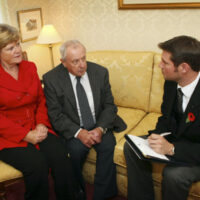The Coroner
A death may be reported to a coroner if the:
- cause of death is unknown.
- death was violent or unnatural.
- death was sudden and unexplained.
- person who died was not visited by a medical practitioner during their final illness.
- medical certificate is not available.
- person who died wasn’t seen by the doctor who signed the medical certificate within 14 days before death or after they died.
- death occurred during an operation.
- medical certificate suggests the death may have been caused by an industrial disease.
The Coroner may decide that the cause of death is clear. In this case:
- The doctor signs a Medical Certificate of Death.
- You take the medical certificate to the Registrar.
- The Coroner issues a certificate direct to the Registrar stating a post mortem isn’t needed.
Post-mortems
The Coroner may decide a post mortem is needed to establish the cause of death.
After the post mortem
The Coroner will release your loved one into our care, once they have completed the post mortem and no further examinations are needed.
If there is no inquest the Coroner will send a form 100b to the Registrar stating the cause of death This will enable you to make an appointment with the Registrar to register the death.
If the funeral is to be a cremation the Coroner will issue a cremation certificate no. 6 direct to the crematorium or to the funeral director. If the funeral is a burial the Registrar will issue a green certificate to you when you register the death, which must be given to the funeral director.
If the Coroner decides to hold an inquest
The Coroner must hold an inquest if the cause of death is still unknown, or if the person died a violent or unnatural death.
Usually an inquest will be adjourned to allow the funeral service to take place. Once all relevant facts have been established the inquest will be reopened. During this time the Coroner will issue to the funeral director the necessary forms for burial or cremation. The Coroner will send an interim death certificate to the family to prove the person is dead. This certificate can be used for bank and insurance purposes.
You can’t register the death until after the inquest. The Coroner is responsible for sending the relevant paperwork to the Registrar. When the inquest is over the Coroner will tell the Registrar what to put in the register and the certificates will then be available from the Registrar.
We understand that a sudden death together with the Coroner’s involvement can be distressing and we will on your behalf liaise with the Coroners Office at all stages to keep you informed.







